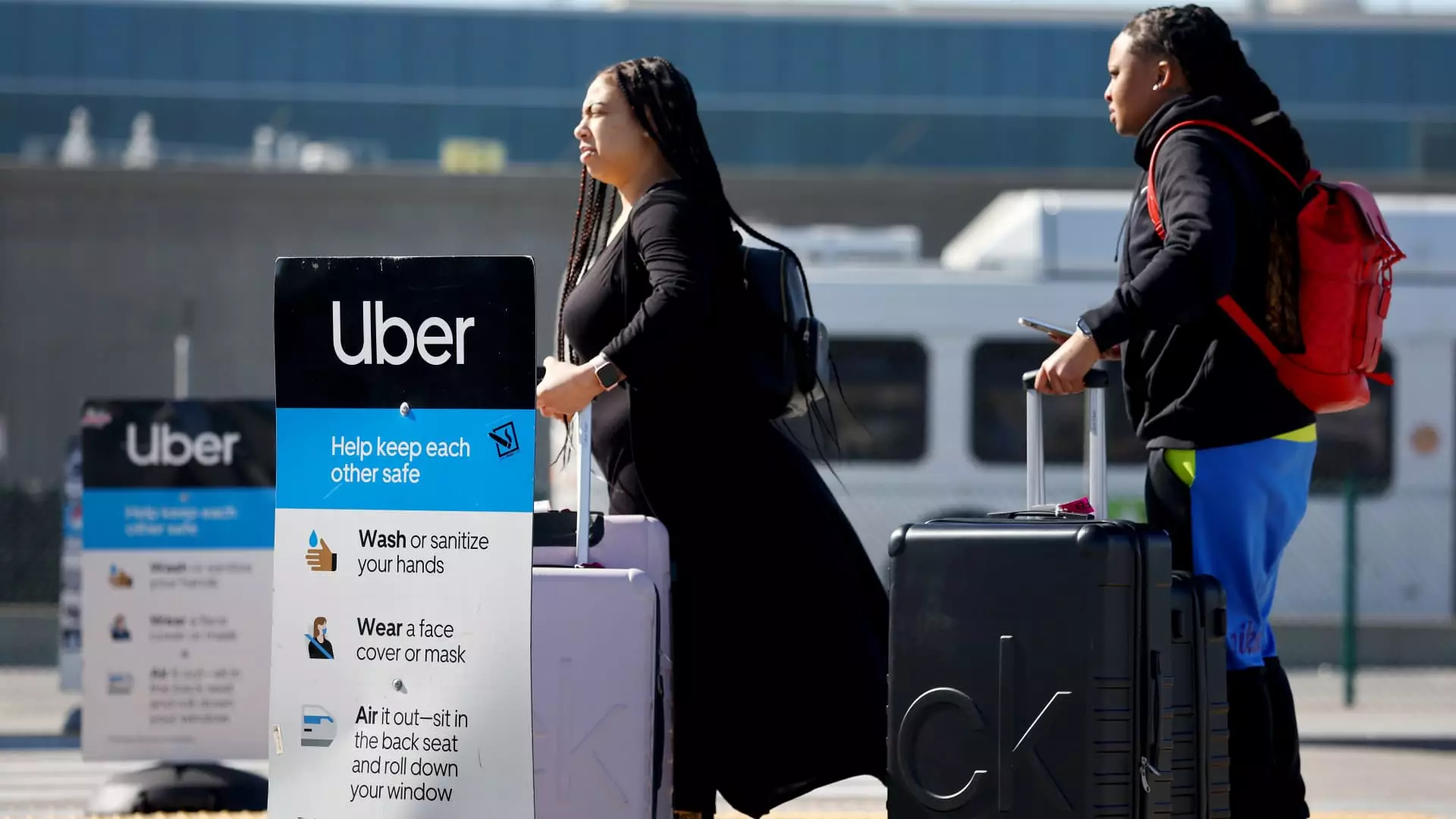In a strategic move that underscores the evolving landscape of travel rewards, Delta Air Lines has announced a transition from its long-standing partnership with Lyft to an alliance with Uber’s extensive ride-hailing services. This partnership, slated to take effect in the spring, aims to enhance Delta’s SkyMiles loyalty program by integrating Uber, offering significant travel rewards to customers. The decision to part ways with Lyft comes after an eight-year collaboration, marking a pivotal shift in how air travelers will earn and redeem loyalty points.
The integration allows SkyMiles members to accumulate points when using Uber—a development that is likely to invigorate the loyalty program given Uber’s expansive user base. With this transition, Delta seeks not only to streamline the travel experience but to solidify its competitive edge in a travel market that has seen a notable recovery and growth from the pandemic.
Under the new agreement, Delta’s SkyMiles members can expect to earn varying rates of miles depending on the type of Uber ride they choose. The program is structured to be particularly attractive, with one mile earned for each dollar spent on standard UberX rides, escalating to two miles per dollar for premium services like Uber Comfort and Uber Black. For those opting for Uber Reserve trips, the reward jumps to three miles per dollar. Additionally, the partnership extends to Uber Eats, where members earn one mile for every dollar spent on food deliveries exceeding $40.
This incentivization strategy not only rewards frequent travelers but also capitalizes on Uber’s wide-reaching market presence, effectively tying the travel experience closer to loyalty program benefits.
The strategic realignment with Uber is not merely about increasing earning potential for SkyMiles members; it’s also a calculated response to changing consumer habits and preferences. Delta’s CEO has emphasized an emphasis on making the airport journey more efficient, which aligns with Uber’s offerings in urban transportation. Furthermore, the announcement at the CES tech show in Las Vegas showcases Delta’s commitment to adopting technology and innovation to enhance travel experience, including an intelligent assistant in its app and upgraded in-flight entertainment systems.
While the change raises questions about Delta’s previous partnership with Lyft, Lyft remains proactive in its efforts to foster new alliances with other brands, suggesting a determination to adapt within the competitive ride-share landscape. Lyft’s partnerships with other significant entities—including Alaska Airlines and major financial institutions—highlight its ongoing pursuit to enhance customer loyalty and expand its service offerings.
Financial Implications and Industry Responses
The financial implications of this partnership extend beyond mere customer rewards, as Delta is expected to leverage its relationship with American Express in ways that enhance profitability. The airline anticipates a revenue boost from its AmEx partnership, projecting it could yield up to $10 billion annually in the long term. Such figures emphasize the monetary stakes involved in loyalty programs and partnerships.
From a competitive standpoint, Uber’s user base significantly dwarfs that of Lyft, with 161 million monthly active users compared to Lyft’s 24.4 million. This disparity illustrates Uber’s stronghold in the market, further justifying Delta’s shift and eliciting a potentially broader audience engagement.
Delta Air Lines’ partnership with Uber signifies a forward-thinking approach to travel loyalty programs. By linking SkyMiles with one of the most recognized ride-hailing services globally, Delta not only enhances the appeal of its loyalty program but also responds proactively to a travel landscape that demands convenience and efficiency. As airlines continue to innovate and refine their approaches to customer loyalty, this partnership exemplifies a commitment to a more integrated and rewarding travel experience. The forthcoming changes underscore the potential for increased customer loyalty and revenue generation, marking a significant chapter in the evolution of airline partnerships in the digital age.

